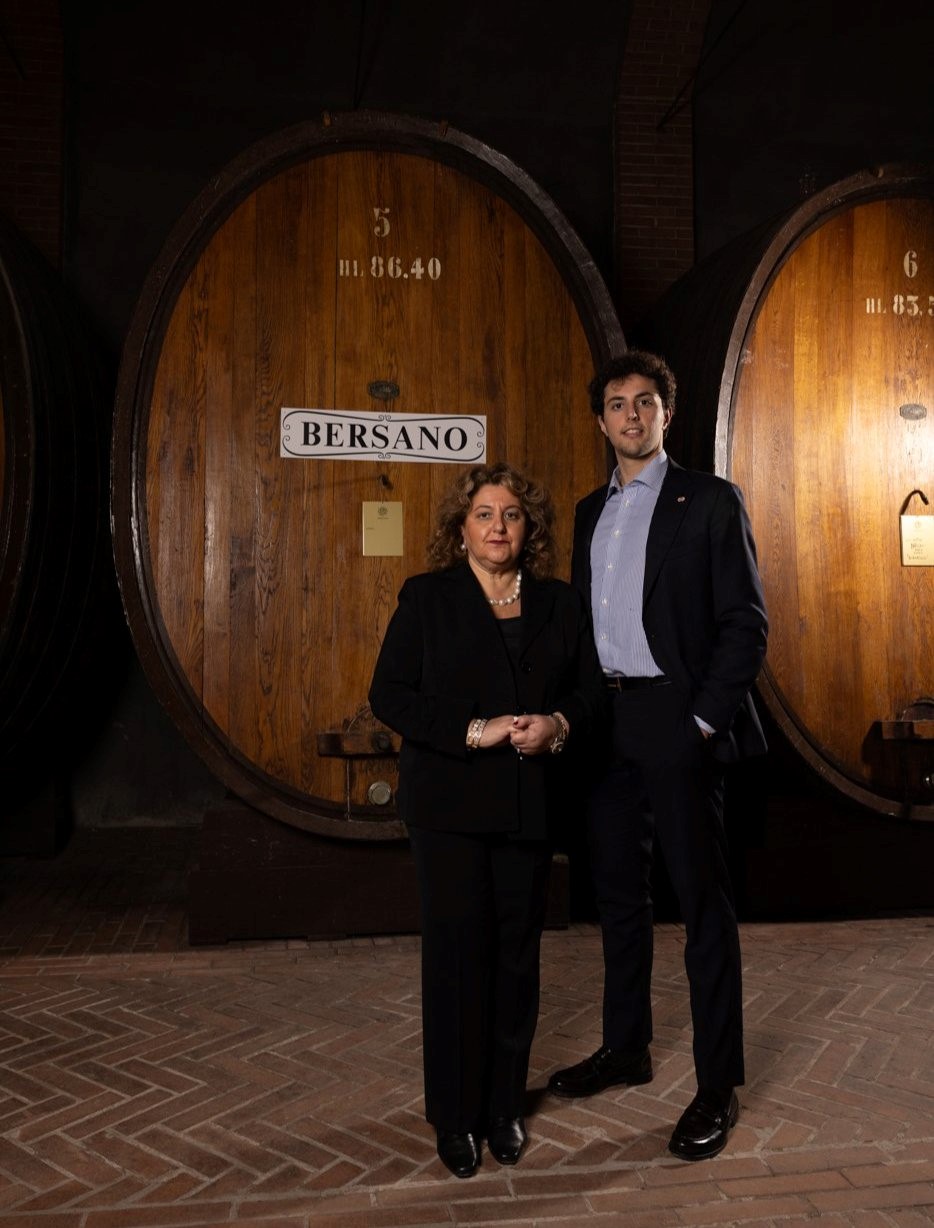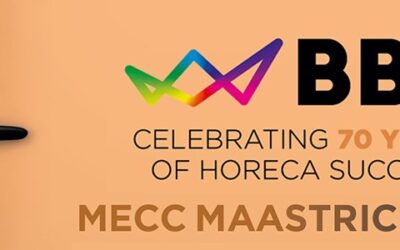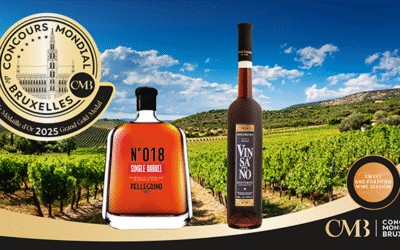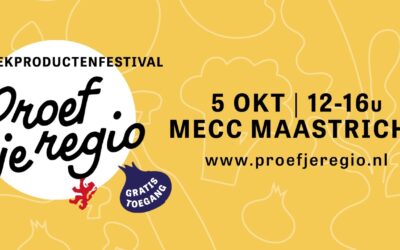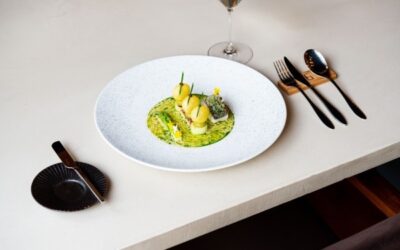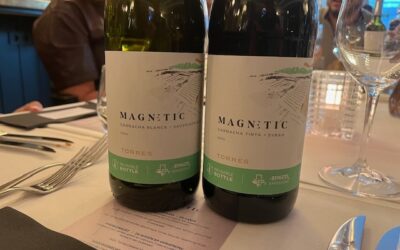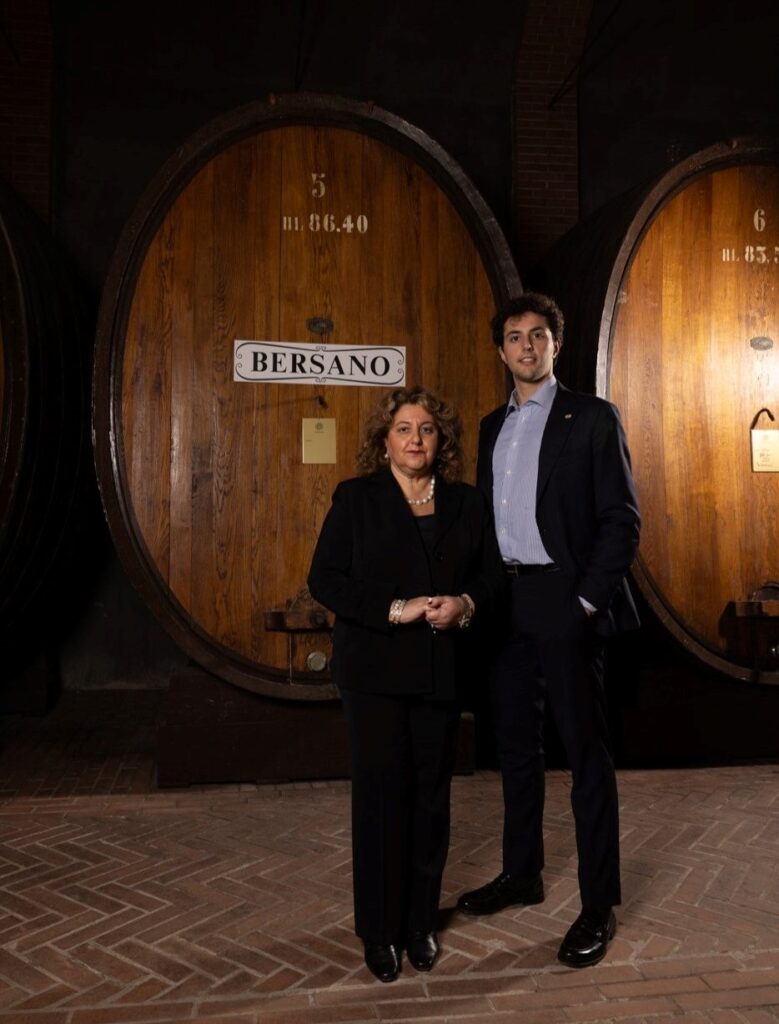
Their efforts are already earning praise, including Gambero Rosso’s prestigious
Tre Bicchieri for Nizza DOCG Cremosina 2021
Nizza Monferrato, October 2024 – Founded in 1907, Bersano is one of the most historic wineries in Piedmont. Thanks to the pioneering vision of Arturo Bersano, the winery has showcased the potential of native grape varieties, emphasizing the selection process and the wine’s ability to convey the essence of its terroir. Arturo laid the foundation for a journey that, since 2021, has continued under the leadership of the four Massimelli sisters, whose vision and managerial approach bring fresh energy to this prestigious legacy.
The company’s revival marks an evolutionary journey, driven by significant investments combining centuries of expertise with the modern challenges of sustainability and innovation. Committed to excellence, Bersano remains true to its territorial identity, with recent revenue growth spread across 40 countries as proof of its success. The winery is also expanding its production and global reach, aiming to solidify its role as a leading force in the Piedmont wine scene. This progress has been met with widespread acclaim, with numerous awards recognizing Bersano’s pursuit of new heights in the wine industry.
2024: A Year of Major Investments and Achievements
2024 has been a year of great success for Bersano, reaffirming the high standards it has achieved and its prominent role across various appellations. Nizza DOCG “Cremosina” 2021 was awarded the coveted “Tre Bicchieri” from Gambero Rosso; while Nizza Riserva DOCG “Generala” 2019, selected as one of the official wines for the G7 in Syracuse, earned 4 Stars from the Touring Club Italiano, placing it among the top 300 Italian wines,in addition to receiving 92 points from Wine Enthusiast and 92 points from Falstaff. Another significant recognition went to Barolo DOCG “Badarina” 2017, which garnered the prestigious 5 Grappoli from Bibenda. Barbera d’Asti DOCG “4 Sorelle” 2022 also received 93 points from Wine Enthusiast.
These awards not only confirm the quality of each wine but also reflect the success of Bersano’s ongoing journey: “Since 1907, Bersano has held one vision: to preserve and share the finest winemaking and convivial traditions of Langhe and Monferrato. It’s an ambitious goal—what some might call impossible, but for us, it’s a promise we keep every day. Wine is the expression of a rich culture, rooted in timeless values: vision, patience, conviviality, and the love of things done well.” says Federica Massimelli, President and CEO.
Bersano continues to grow and tap into its full potential. “There’s still significant room for growth, and we’re working on it across different areas of the business. Our strong foundation, diverse product portfolio, and rich history make us a well-rounded and dynamic company. On the hospitality front, our two historic museums and ten farmsteads are set to become major tourism destinations, offering a full experience across Langhe, Roero and Monferrato. We are dedicated to preserving the agricultural traditions that define who we are and honoring the legacy of those who came before us. We’ve always protected and shared the essence of Langhe and Monferrato’s wine culture and convivial spirit with the world. Our wines, deeply rooted in the region, continue to stand the test of time – iconic yesterday, iconic tomorrow.” explains Federica Massimelli.
Honoring tradition and embracing innovation: “In 2024, we’ve taken a fresh approach to the harvest, focusing on maximizing the potential of our cru and riserva wines” shares Federico Orione, Chief Marketing Officer. “Recent investments in state-of-the-art machinery have been key, alongside the expansion of our team, including the addition of a hospitality manager to elevate the visitor experience. On top of that, we’re investing heavily in our distribution network, hiring new personnel for our staff and working to forge partnerships with new importers and agents to better meet the challenges of the global market.”
A Legacy of Winemaking Excellence
Bersano manages a 230-hectare property, one of the largest privately-owned vineyard estates in Piedmont. The 10 farmsteads, around which most of the vineyards are cultivated, are inspired by the French clos model, where the character of the grape variety is closely tied to the surrounding terroir.
“For centuries, the cascina has been central to Piedmont’s rural tradition. These farmsteads are more than just part of the agricultural heritage; they are true landmarks, with unique soils and microclimates shaping the identity of our wines.” adds Federica Massimelli, President and CEO of Bersano.
At the heart of Bersano’s production are Piedmont’s native grape varieties, each telling a distinct and complementary story of the region. Barbera grapes come from the area of Nizza Monferrato, the prime region for Barbera d’Asti. Nebbiolo, grown in the Langhe, gives life to the most classic expression of Barolo. Ruchè, a local gem, flourishes in the hills of Castagnole Monferrato, where it has been rediscovered and elevated to excellence. Meanwhile, Brachetto and Moscato ripen under the sun on the hills of Asti, giving the wines their signature freshness and unmistakable aromas.
“For us, Piedmont and quality come before everything else. Every grape is carefully selected to capture the authentic expression of the land, allowing Bersano to deliver consistent quality even in the most challenging vintages.” explains Federico Orione, Bersano’s Chief Marketing Officer
Bersano: The Culture of Conviviality
A lawyer by profession but a winemaker at heart, Arturo Bersano was one of the first to embrace the profound connection between the vineyard, the land and the culture of wine. His vision extended beyond the material and anthropological dimensions of winemaking to highlight its role in fostering a sense of shared community. His efforts (and his extraordinary Museums) were instrumental in preserving Piedmont’s rural traditions—a legacy now carried on with unwavering dedication by the Massimelli family.
The Museo delle Contadinerie, envisioned in 1950 and completed in 1961, is one of Italy’s most important museums dedicated to rural life and winemaking. It’s an integral part of the “Piedmont Wine Landscapes”, a UNESCO World Heritage Site since 2014, which includes numerous landmarks celebrating the region’s agricultural and wine culture. Among the highlights are several majestic 18th-century wine presses, powerful symbols of Piedmont’s winemaking history.
Next to the museum, the Raccolta delle Stampe Enoiche holds over four centuries of wine-related art, including prints, drawings, engravings and rare books. This collection showcases the evolution of wine, not only as a product but as a cultural icon, weaving together art, poetry and tradition.

